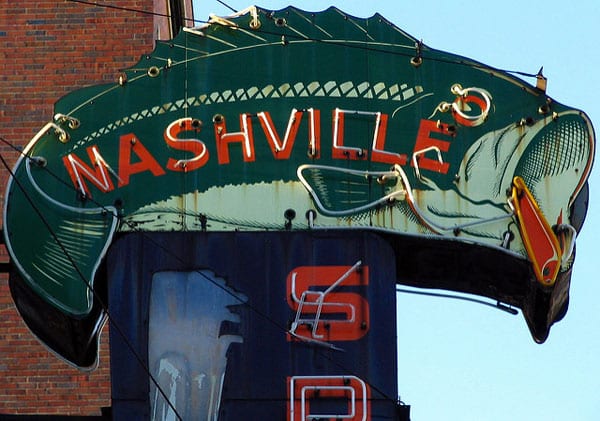
March 19, 2019; Nashville Tennessean
As NPQ noted last November, while Nashville did not become Amazon’s second headquarters city, Amazon did announce at the time that it would locate in the city an “Operations Center of Excellence,” expected to employ up to 5,000 people. In exchange, Amazon is receiving $102 million in tax breaks from the state and the city. Nashville’s share of that $102 million was $17.5 million and this past Tuesday Nashville’s Metro Council approved that amount on a 30–3 vote.
The outcome did not surprise anyone, but—as in Arlington County, Virginia—approval did not occur without the voicing of loud public opposition that has been building in Nashville since last fall. “Several residents spoke in opposition to the incentives ahead of the vote Tuesday while others held signs that said: ‘No $$ for Amazon,’” writes Yihyun Jeong in the Tennessean.
While the vote was lopsided, public opposition did not go unnoticed. Council member Tanaka Vercher, who sponsored the bill approving the tax breaks, asked the crowd to be “Be patient with this body.” She promised that the Council would continue “behind the scenes” to “ask tough questions” and ensure Amazon’s accountability to the community. “You will still have a voice as we continue throughout this process,” she added.
The resolution commits Nashville to paying a $500-per-job incentive—up to $2.5 million every year, for seven years. Originally there was no cap, so if Amazon created more than 5,000 jobs, it could receive more than $2.5 million, but the council voted Tuesday to cap the payment at $2.5 million. In addition to the direct payments to Amazon, the previous month, the Metro Council approved $15.2 million in February for infrastructure work around Nashville Yards, a downtown mega-development that will house both Amazon’s Operation Center and other businesses.
Jeong adds, “The state will award Amazon a $65 million cash grant for capital expenditures based on the company creating 5,000 jobs over the next seven years. That would be equal to $13,000 per job. The state will also provide an additional $21.7 million in job tax credits based on $4,500 per job over seven years to offset state franchise and excises taxes.”
Amazon will have to follow the disclosure rules passed overwhelmingly by Metro Council a little over a year ago in reaction to the secretive nature of the Amazon second headquarters city bidding process, including providing “the type and number of jobs that will be created” and “the wages and benefits offered for the identified jobs.” These measures put Nashville ahead of many states and cities. As Liz Farmer writes in Governing, “20 states still don’t regularly assess their corporate giveaways at all, and few cities have established systems to routinely track these incentives.”
Sign up for our free newsletters
Subscribe to NPQ's newsletters to have our top stories delivered directly to your inbox.
By signing up, you agree to our privacy policy and terms of use, and to receive messages from NPQ and our partners.
Still, frustration by community members in Nashville is evident. At the council meeting, Julio Fernandez, an organizer with Stand Up Nashville, a coalition of labor unions and community groups that had led the effort to oppose the payments to Amazon, said, “If New York people say no, why does Nashville say yes?”
“As a city, we keep doing the same thing and expecting a different result,” Michael Callahan-Kapoor, also with Stand Up Nashville, told Jeong. “It’s called trickle-down economics. Hand over the resources we generate to wealthy corporation and developers with a promise that prosperity will trickle down to everyone else.”
“The problem is that it never does,” he continued. “This policy choice only benefits a select group of rich people while the majority of us are left behind or pushed out.”
A number of Council members acknowledged that while the disclosure measure was a good first step, Nashville’s system of accountability still has many holes. Vercher, who also chairs the Budget and Finance Committee, said she wants to see further legislation. The Amazon deal, she said, “creates heartburn for many of us.”
Jeong adds that a number of council members called for “changes to how incentives are done in the city” with the goal of “making Nashville the model city for others to follow.”
Sharon Hurt, another Council member echoed Vercher’s heartburn remark and criticized the mayor’s office for not being inclusive of the Council. “The way that it’s done doesn’t feel good and doesn’t look good,” Hurt said. “I also think that we need…preventive measures prior to making these negotiations with corporations to make sure we don’t repeat some of the same mistakes that have been made with other cities.”
“If they had regular people at the table, I am sure they would have a better perspective on how it meets or does not meet the needs of our citizenry,” Hurt added.—Steve Dubb












